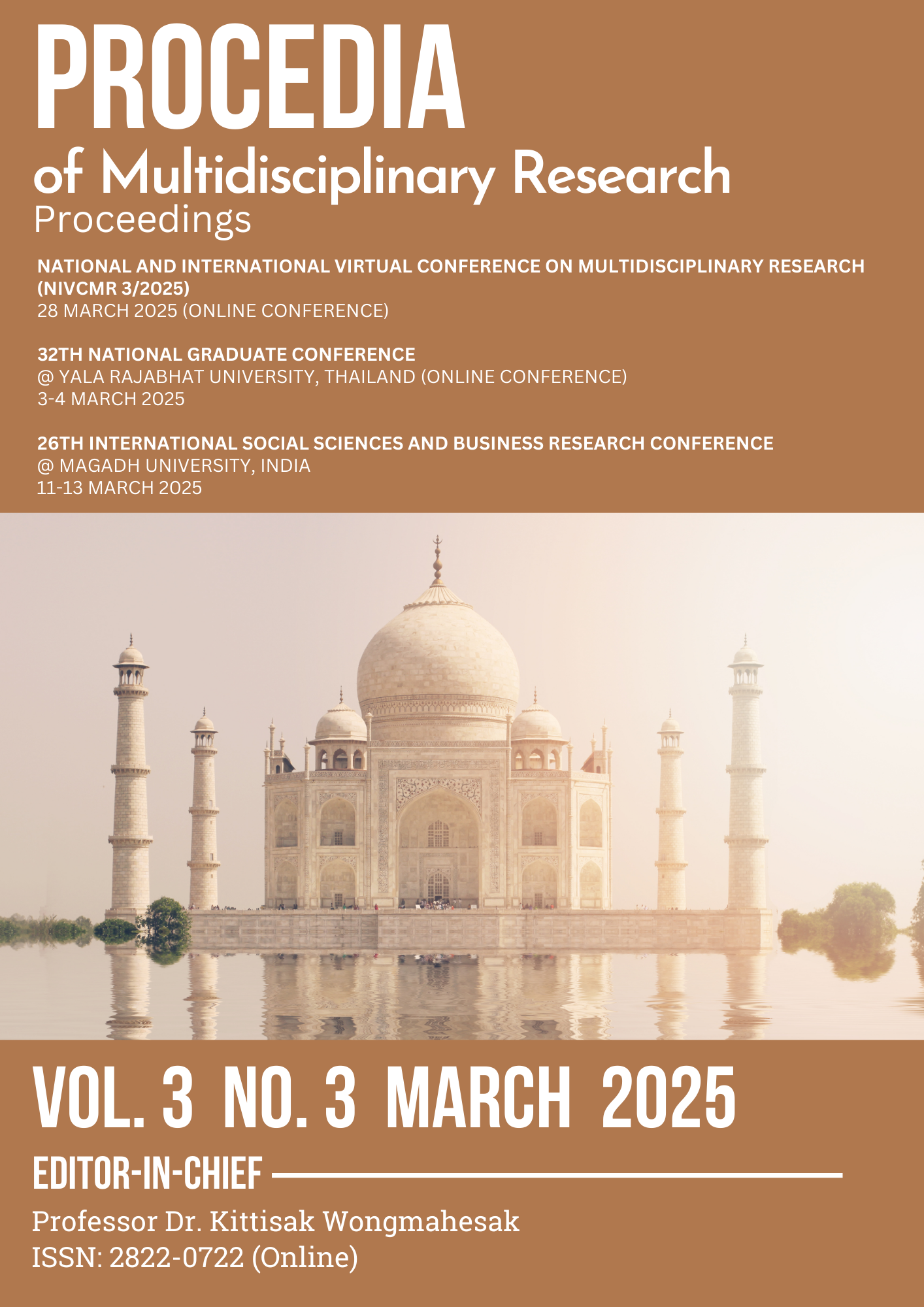ACADEMIC SERVICES ON SUPPLEMENTARY OCCUPATIONS FOR INCOME GENERATION: A CASE STUDY OF SONG PHI NONG COMMUNITY, KAENG KRACHAN DISTRICT, PHETCHABURI PROVINCE
Abstract
This research aims to study community engagement, vocational training programs, and the increase in supplementary income among the residents of Song Phi Nong Subdistrict, Kaeng Krachan District, Phetchaburi Province. The findings indicate the following: 1) Community Issues and Needs; The study identifies key community challenges, including low income, health concerns, and educational limitations. There is a demand for supplementary occupations during periods when primary jobs are unavailable, as well as a need for support in developing and enhancing product processing. 2) Implementation of Vocational Training Programs; The training program includes a 150-hour Thai massage course with 16 participants, of whom 68.75% are female, with an average age of 37.81 years. Among them, 81.25% are married, and 31.25% work as wage laborers. The training incorporates lectures, demonstrations, hands-on practice, recreational activities, worksheets, and assessments over 25 days. Additionally, a fish processing enterprise group, consisting of 29 members, is established to produce three processed products from Pla Kamang: fried fish cakes, minced fish, and fermented fish. 3) Increase in Income from Supplementary Occupations; The study reveals that before participating in the program, the average monthly income of participants is 11,562.5 THB. After engaging in the vocational activities, all participants experience an increase in earnings, with their new average monthly income reaching 18,824 THB.
Downloads
Published
Issue
Section
License

This work is licensed under a Creative Commons Attribution-NonCommercial-NoDerivatives 4.0 International License.







.png)


